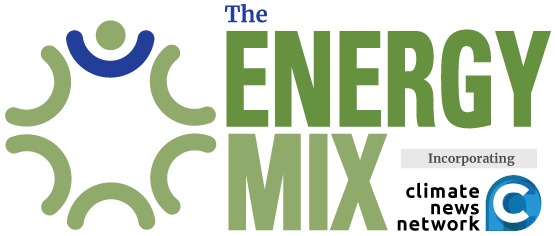• Support a diverse and resilient media ecosystem [thanks, folks!—Ed.];
• Support inclusion of information integrity commitments in the United Nations Framework Convention on Climate Change (UNFCCC)’s Action for Climate Empowerment agenda;
• Advance equitable access to accurate, evidence-based, understandable information to promote informed and inclusive climate action;
• Foster cooperation and capacity-building to address threats to information integrity and protect climate reporters and researchers.
Climate disinformation is a longstanding issue that has served the interests of fossil fuel companies and helped to delay effective climate action, reports EuroNews, and it was on the rise leading up to the COP30 summit. A report by Climate Action Against Disinformation and the Observatory for Information Integrity found that COP-related disinformation rose 267% between July and September.
The declaration earned applause from climate advocates and organizations, including the Canadian Association of Physicians for the Environment (CAPE), which had called on the Canadian government to join the global information integrity initiative.
But at the same time, CAPE denounced the federal government’s recent decision, contained in the 2025 budget, to roll back anti-greenwashing measures adopted in June 2024. The organization says that decision will undermine information integrity domestically.
Dr. Joe Vipond, emergency physician and past president of CAPE, said Canada’s joining the global initiative is “a good step forward towards protecting the truth,” but the “government’s plan to weaken existing greenwashing rules [in Canada] would be a major step backward.”
Climate champions and environmental groups broadly supported Bill C-59, which strengthened Canada’s anti-greenwashing laws through amendments to the federal Competition Act. But corporations raised concerns about provisions that extended the scope of private party claims and set requirements—which companies said were too vague—that “green” marketing claims be backed up by internationally recognized methodology.
Opponents said the new law would lead to a “chilling effect” on companies sharing environmental information or prompt “greenhushing,” in which companies would stop publishing climate disclosures out of wariness of greenwashing claims.
They also took issue with the bill’s “reverse onus” that would require a company accused by a private party of greenwashing to prove that its claim was substantiated, says the Canadian Climate Law Initiative.
Guidance released by the federal government in December sought to address these concerns, clarifying that the provisions would not apply to information shared exclusively with investors and shareholders.
But in the recent federal budget, the government announced its intention to roll back key parts of the bill that it said were creating investment uncertainty, particularly for international entities. The government said it aimed to create “more certainty” in markets by removing the requirement that claims be substantiated by internationally acceptable methodology, reports Responsible Investor.
In one response to the budget, members of the Canadian Climate Law Initiative stated that while they “appreciate the legal risks and unintended consequences, whether real or perceived,” that arose from Bill C-59, the “proposed legislative change leaves a lot of questions open on the intent and extent of the amendments and what that will mean for the substantiation requirement for claims.”
In a recent opinion article, Thomas Walker and Maya Saryyeva of the Institute for Sustainable Finance at Queen’s University argue that Canada can address Bill C-59’s shortcomings by looking to Australia’s “more mature and robust” anti-greenwashing legislation. They recommend that Canada develop clearer guidance with sector-specific examples, fortify coordination between the Competition Bureau and financial regulators, and mandate climate-related corporate reporting that is aligned with the Canadian Sustainability Standards Board.



